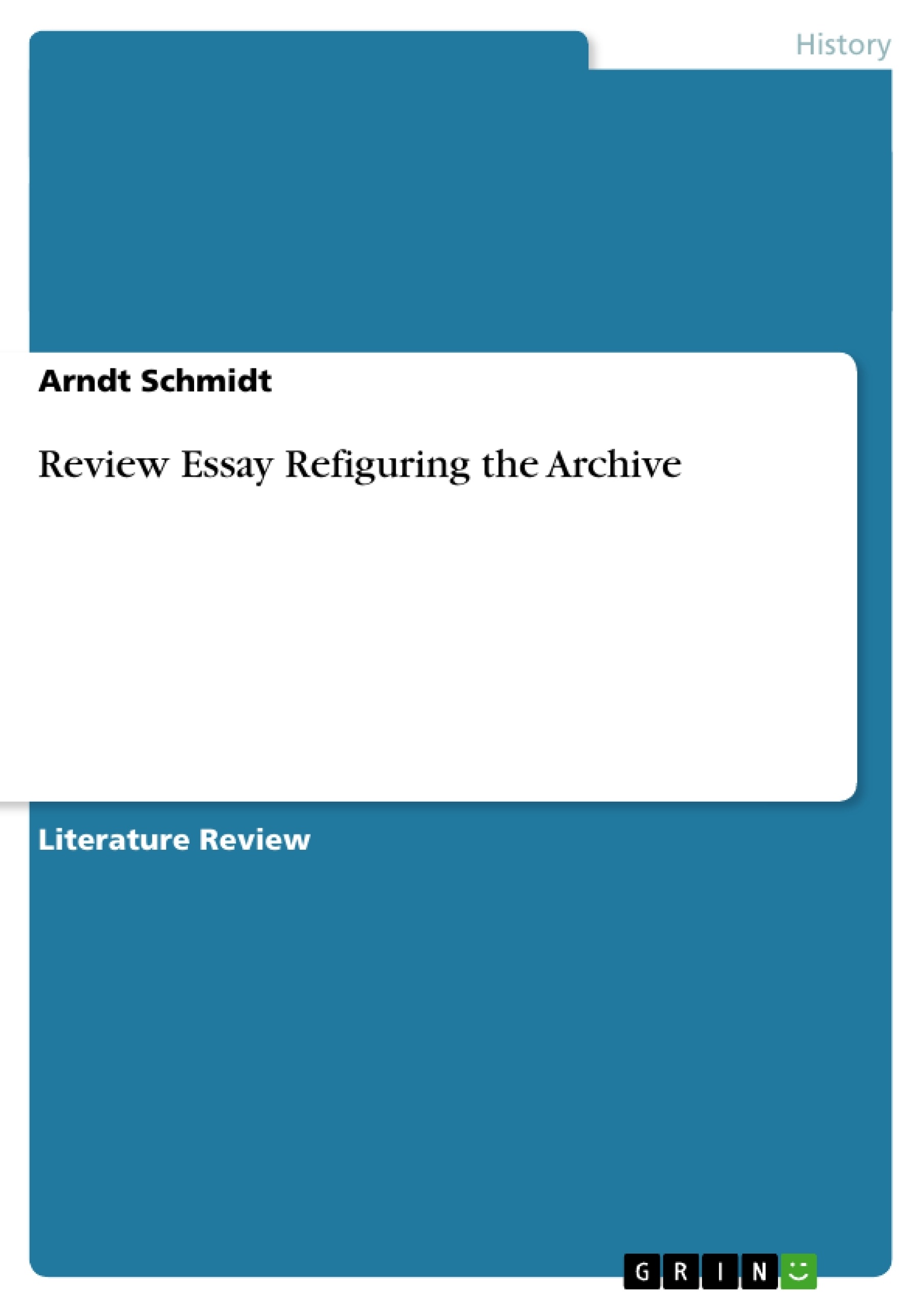Working in archives is indeed “the bread and butter” of the historian. Before they go there for the first time however, hardly any student of history has got a thorough understanding of how archives function and what they represent. Thus, for many it turns out to be a quite intimidating experience, because one can all too easily get lost as one rarely has a definite starting point, let alone a proper map for the first descent. On the other hand, some archives offer guided tours that leave their visitors with a feeling of crossing the thresholds to the halls of the past, imbuing them with a sense of awe before all of that stored evidence.
The conventional notion of the archive has generally been of a place where evidence about past events is being preserved for present and future generations. This implied the assumption that the primary sources uncovered from the archive were to be treated like impartial witnesses, capable of producing objective knowledge about the past, as long as they were interpreted according to historical methodology. Starting from the assumption that such a conventional idea of the archive is very much outdated, the project of “Refiguring the Archive” is to “bring to bear on `archive´ an interrogation similar to that which concepts like `canon´ or `orientalism´ have undergone” and to “develop our understanding of the circumstances of the creation of the archival record”.
In order to understand why the above described notion of archive is outdated in the post-modern world and to see the necessity of interrogating “circumstances of the creation of archival record”, it proves helpful to remember some of the origins of such questioning. In 1967, Richard Rorty published an anthology with the title “The Linguistic Turn. Recent Essays in Philosophical Method”. Whereas Immanuel Kant had been the first philosopher to formulate the boundaries of human reason, the linguistic turn represented a consequent application of Kant’s ideas, since the limits of our thinking are in fact determined by the limits of our language.
Inhaltsverzeichnis (Table of Contents)
- Introduction
- The Linguistic Turn
- Refiguring the Archive
- Conventional Idea of an Archive
- Questioning the Conventional Idea
- Functions and Applications of Archives
- Post-Apartheid Archive
- Artistic Influences and Intertextuality
- Themes and Concerns
- Theoretical Framework
- Making of Archives and Power Relations
- Expanding the Definition of Archive
- Epistemological Considerations
Zielsetzung und Themenschwerpunkte (Objectives and Key Themes)
This essay explores the evolution of the concept of archives from a conventional understanding to a more nuanced perspective informed by the linguistic turn. It examines the limitations of viewing archives as neutral repositories of objective knowledge and argues for a critical interrogation of the processes involved in their creation and interpretation. The key themes of the essay are:- The influence of the linguistic turn on historical methodology.
- The construction of archives as a product of power relations and social norms.
- The need to question the epistemological foundations of archival practice.
- The broader significance of archives in shaping historical narratives and cultural memory.
- The role of archives in reflecting and influencing social change, particularly in the post-apartheid context.
Zusammenfassung der Kapitel (Chapter Summaries)
The essay begins by introducing the conventional notion of archives as neutral repositories of evidence for historical research. It then outlines the linguistic turn and its impact on understanding language as a constitutive element of knowledge. The essay then delves into the project of "Refiguring the Archive," which challenges the conventional view. It explores the key questions that underpin this project, such as the nature of the archive, the impact of power relations on its construction, and the potential for expanding its definition beyond traditional boundaries. The essay highlights the artistic and intertextual elements of the "Refiguring the Archive" project, emphasizing the fluidity and complexity of archival practices. It further analyzes the three main themes of the project: a theoretical critique of traditional archival thinking, the examination of power dynamics in archival creation, and a broader understanding of what constitutes an archive.Schlüsselwörter (Keywords)
This essay revolves around the concepts of archives, the linguistic turn, epistemology, power relations, and social change. It examines the critical interrogation of the conventional understanding of archives and explores their construction, function, and significance in shaping historical narratives and cultural memory, particularly in the context of post-apartheid South Africa.Frequently Asked Questions
What is the "linguistic turn" in the context of archives?
The linguistic turn suggests that the limits of our thinking are determined by the limits of our language, meaning historical records are not neutral but are shaped by the language and context of their creation.
Why is the conventional notion of an archive considered outdated?
The idea of archives as neutral repositories of objective knowledge is outdated because it ignores the power relations and social norms that dictate what is preserved and how it is interpreted.
How do power relations influence archival records?
Archives are often products of institutional power, reflecting the biases and priorities of those who created them. This affects whose history is told and whose is silenced.
What is the significance of the post-apartheid archive?
In South Africa, "refiguring the archive" is crucial for social change, as it involves interrogating the circumstances of record creation to build a more inclusive cultural memory.
What are the main themes of the "Refiguring the Archive" project?
The project focuses on a theoretical critique of traditional archival thinking, the examination of power dynamics, and expanding the definition of what constitutes an archive.
- Quote paper
- Arndt Schmidt (Author), 2008, Review Essay Refiguring the Archive, Munich, GRIN Verlag, https://www.grin.com/document/189023



